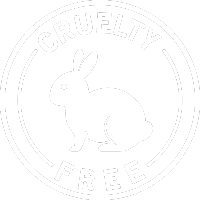Beyond the Mirror: How Clean Beauty Is Shaping a New Kind of Power
For many women around the world, beauty has long been a complicated ritual — one that can be empowering, performative, or pressured, depending on the context. But over the last decade, a quiet revolution has been reshaping the industry. It’s called clean beauty. And it’s doing more than just clearing out questionable ingredients. It’s building a global movement rooted in knowledge, choice, and power.
1. Knowledge = Power: Clean Beauty Makes Ingredients Visible
At its core, clean beauty is about transparency. No more indecipherable labels, mysterious additives, or vague marketing promises. For the first time, women everywhere — from São Paulo to Stockholm to Seoul — can decode what they’re putting on their skin and scalp.
-
It shifts the narrative from “how to look good” to “how to feel good about what you’re using.”
-
It encourages informed choices rather than passive consumption.
-
It welcomes the curious, not just the trend-followers.
In this way, clean beauty educates. And educated women are harder to manipulate — in beauty or beyond.
2. Accessibility Across Borders: Global Standards, Local Adaptation
Clean beauty is not limited to luxury shelves. Thanks to e-commerce, social media, and international regulation shifts, women in many parts of the world can now access high-performance, clean-formula products that were once exclusive to certain markets.
Nutree Cosmetics, for example, is a Brazilian-born brand now trusted in over 60 countries. Its best-selling keratin and repair products — like Bondox Expert and the Amazonliss Reconstruction Kit — use performance-based, clean formulations that cater to diverse hair types without relying on harsh chemicals.
What this means:
-
Women in tropical climates aren’t stuck with heavy, synthetic-heavy products that weigh hair down.
-
Curly, coily, color-treated, or frizz-prone hair gets solutions made with real consideration.
-
Beauty becomes a tool for autonomy — not uniformity.
3. Clean Beauty Is Inclusive by Design
Clean beauty isn’t about chasing flawlessness. It’s about respecting your biology, your culture, your routine. It removes the shame that traditional advertising once relied on.
-
You don’t need to be “younger.”
-
You don’t need to be “more like her.”
-
You don’t need to cover up what makes you real.
This messaging shift is subtle — but seismic. And it’s changing how women see themselves and each other.
4. It Encourages Ritual, Not Rush
In many cultures, self-care was historically slow. Hair oils passed from grandmothers. Skincare as daily grounding. Clean beauty returns to this — inviting women to reclaim beauty as a ritual, not a race.
Nutree’s pink Repair Shot ampoule, for instance, isn’t just a salon-grade treatment. It’s a weekly reminder to pause, nourish, and restore — at home, in your time, with intention.
When women care for themselves on their terms, it stops being about surface and starts being about sovereignty.
5. Beauty as a Bridge, Not a Barrier
As women connect through beauty — TikToks, reviews, tutorials, rituals — they exchange not just tips, but truths. Clean beauty fosters this global sisterhood:
-
Less competition, more community.
-
Less shame, more curiosity.
-
Less toxicity, in formulas and in language.
When beauty becomes honest, it becomes shared. And when it's shared, it becomes powerful.
Final Thought
Clean beauty isn’t just a trend. It’s a reclamation.
It tells women:
Your body deserves care, not compromise.
Your beauty doesn’t need fixing — just respecting.
You’re allowed to ask questions. And to expect answers.
And in a world that often profits from insecurity, that kind of message is revolutionary.
Let your routine be more than a habit.
Let it be a quiet act of power.










